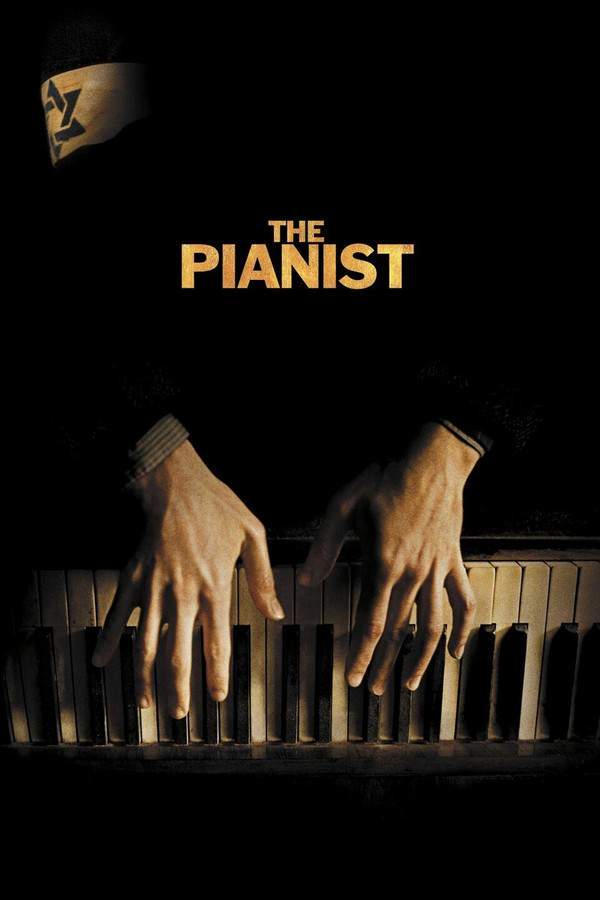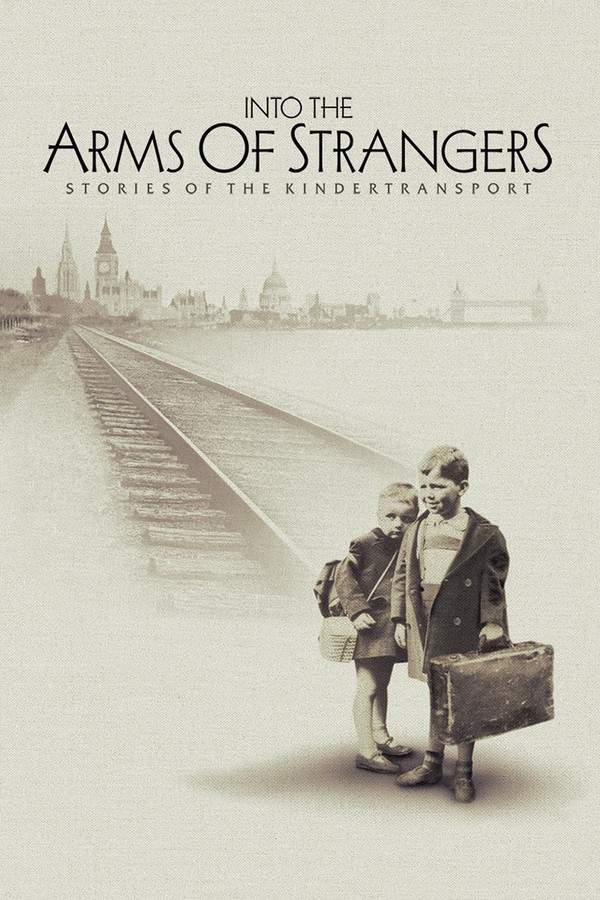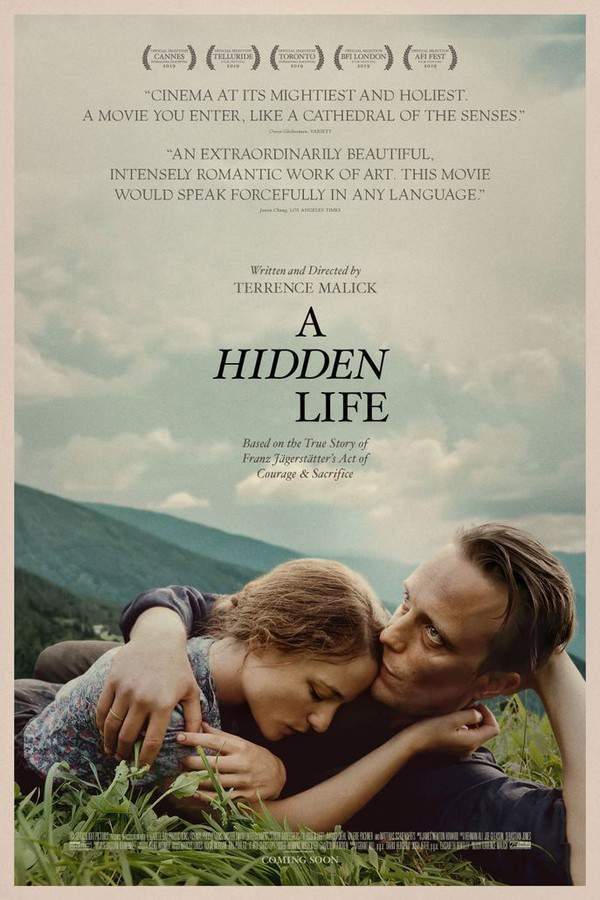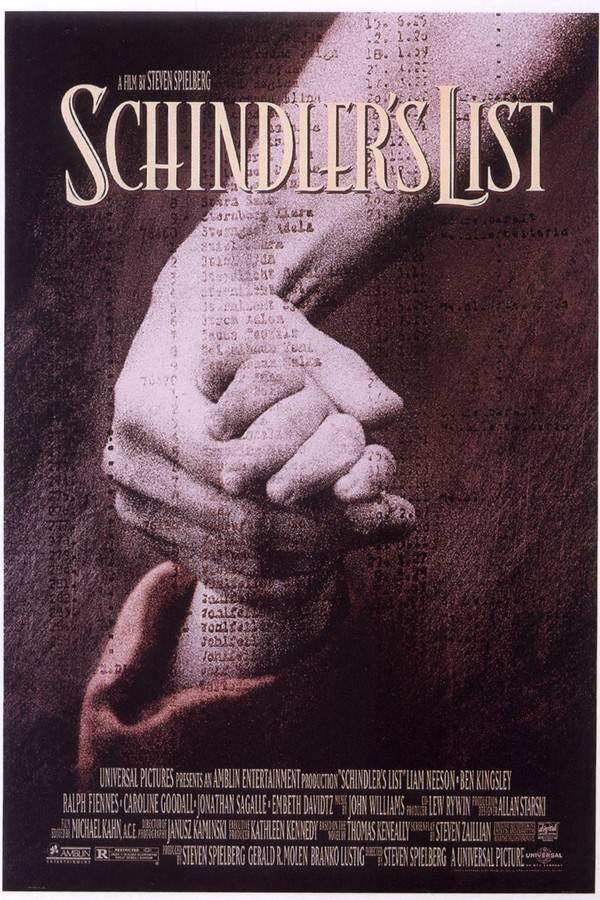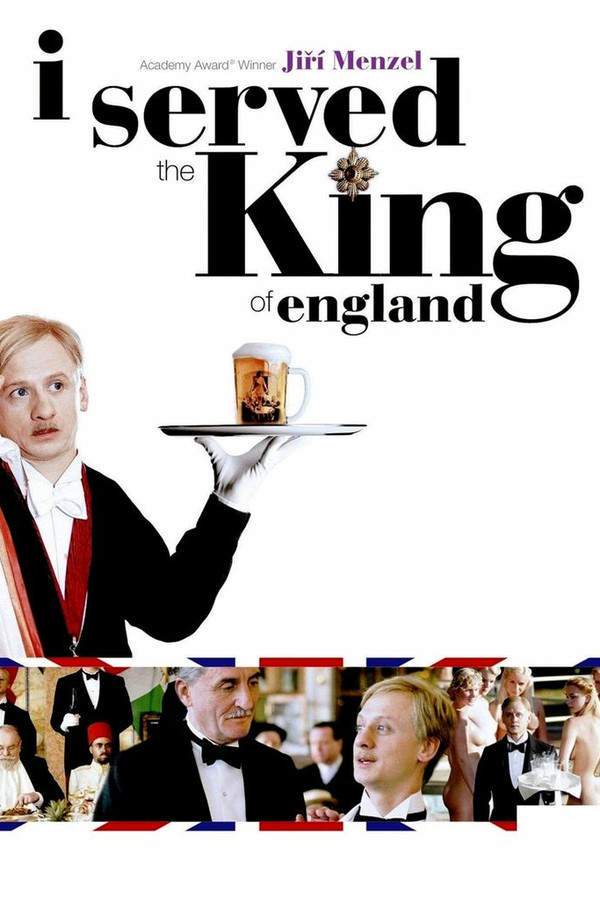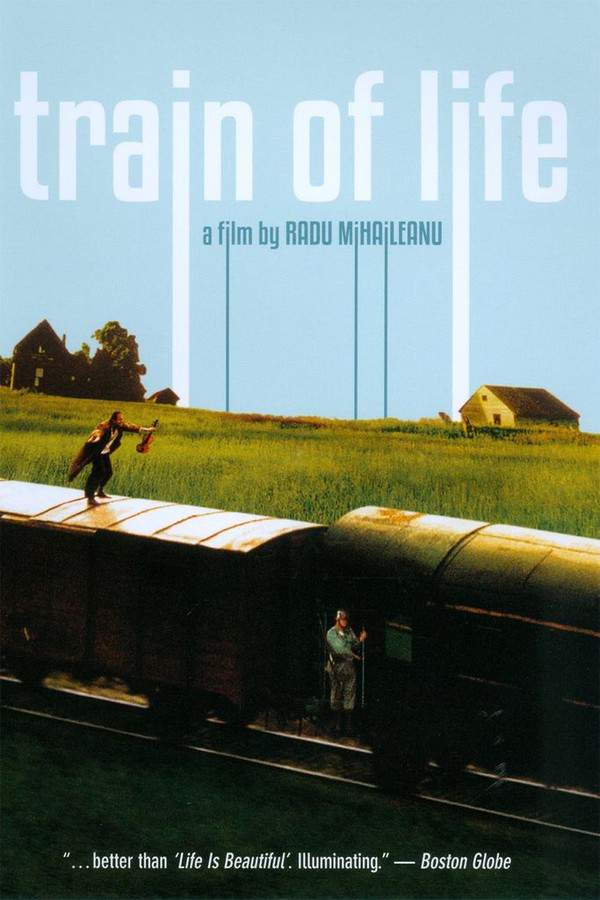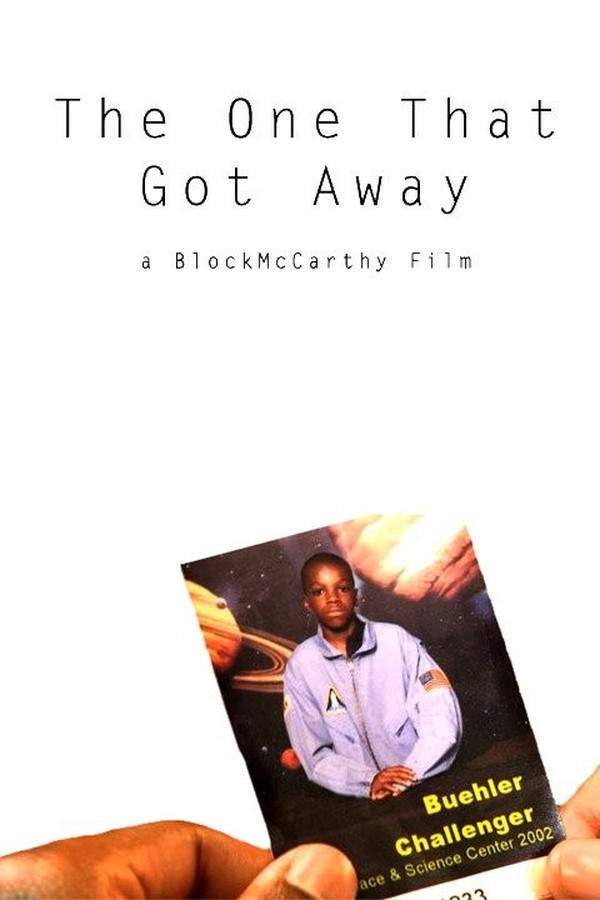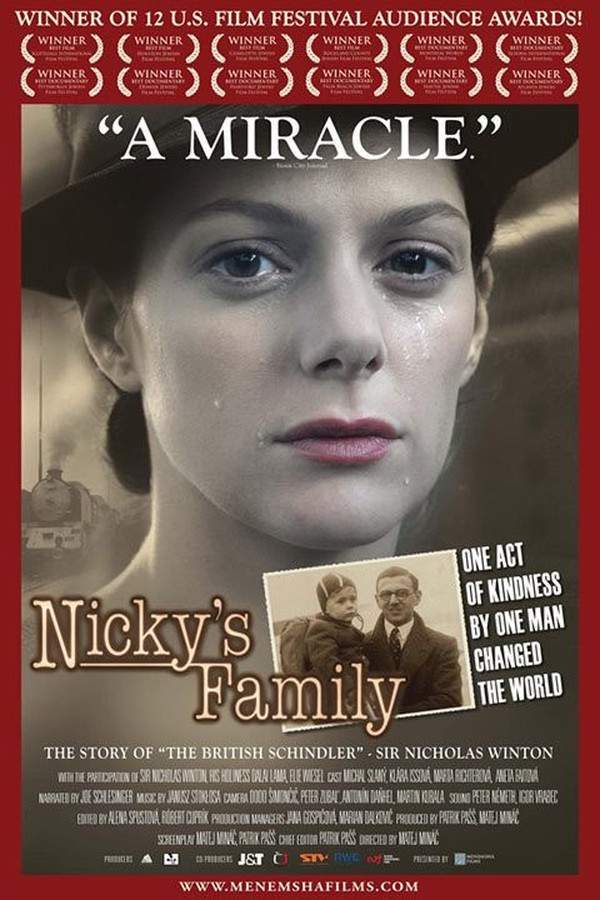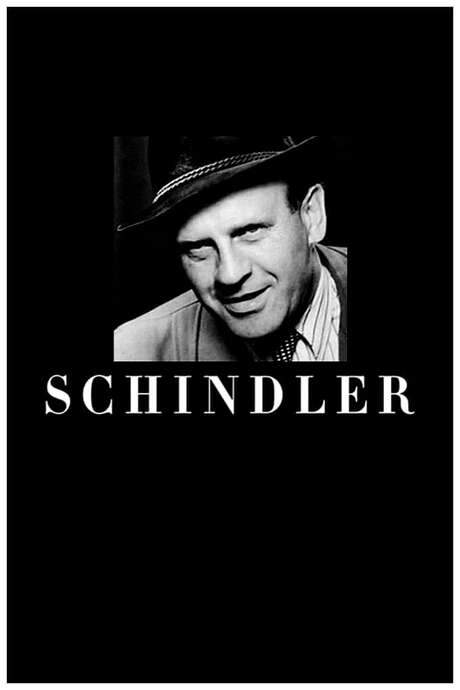One Life 2024
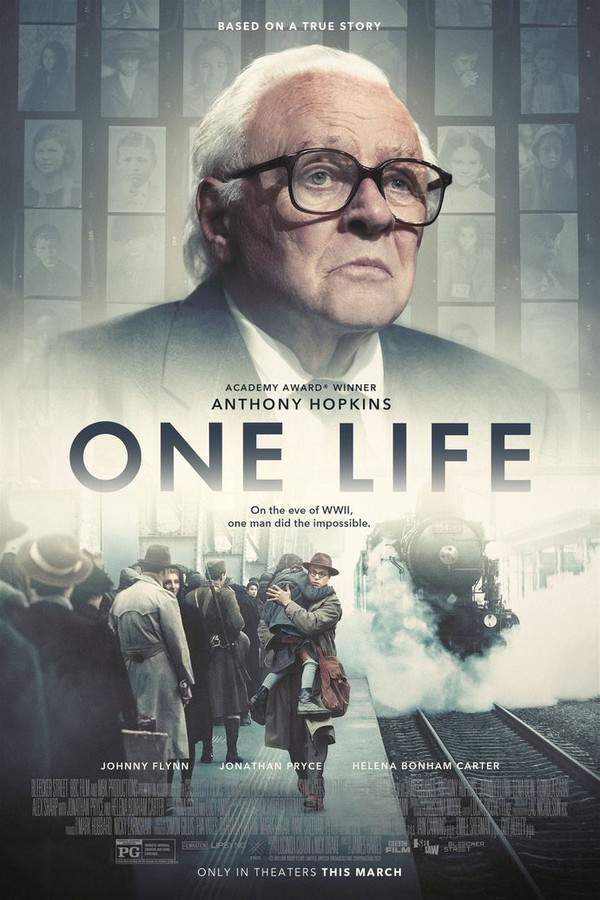
In the years leading up to World War II, a young broker named Nicholas Winton unexpectedly finds himself in Prague. Moved by the plight of Jewish refugees, he embarks on a remarkable mission to rescue hundreds of children from the threat of Nazi oppression. Through extraordinary courage and unwavering commitment, Winton orchestrates the rescue and safe passage of 669 innocent children, forever changing their lives and offering them a chance at a future.
Does One Life have end credit scenes?
No!
One Life does not have end credit scenes. You can leave when the credits roll.
Meet the Full Cast and Actors of One Life
Explore the complete cast of One Life, including both lead and supporting actors. Learn who plays each character, discover their past roles and achievements, and find out what makes this ensemble cast stand out in the world of film and television.

Anthony Hopkins
Nicky Winton
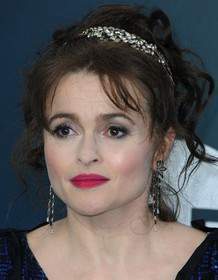
Helena Bonham Carter
Babi Winton
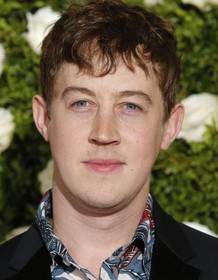
Alex Sharp
Trevor Chadwick

Johnny Flynn
Young Nicky Winton

Lena Olin
Grete Winton

Romola Garai
Doreen Warriner
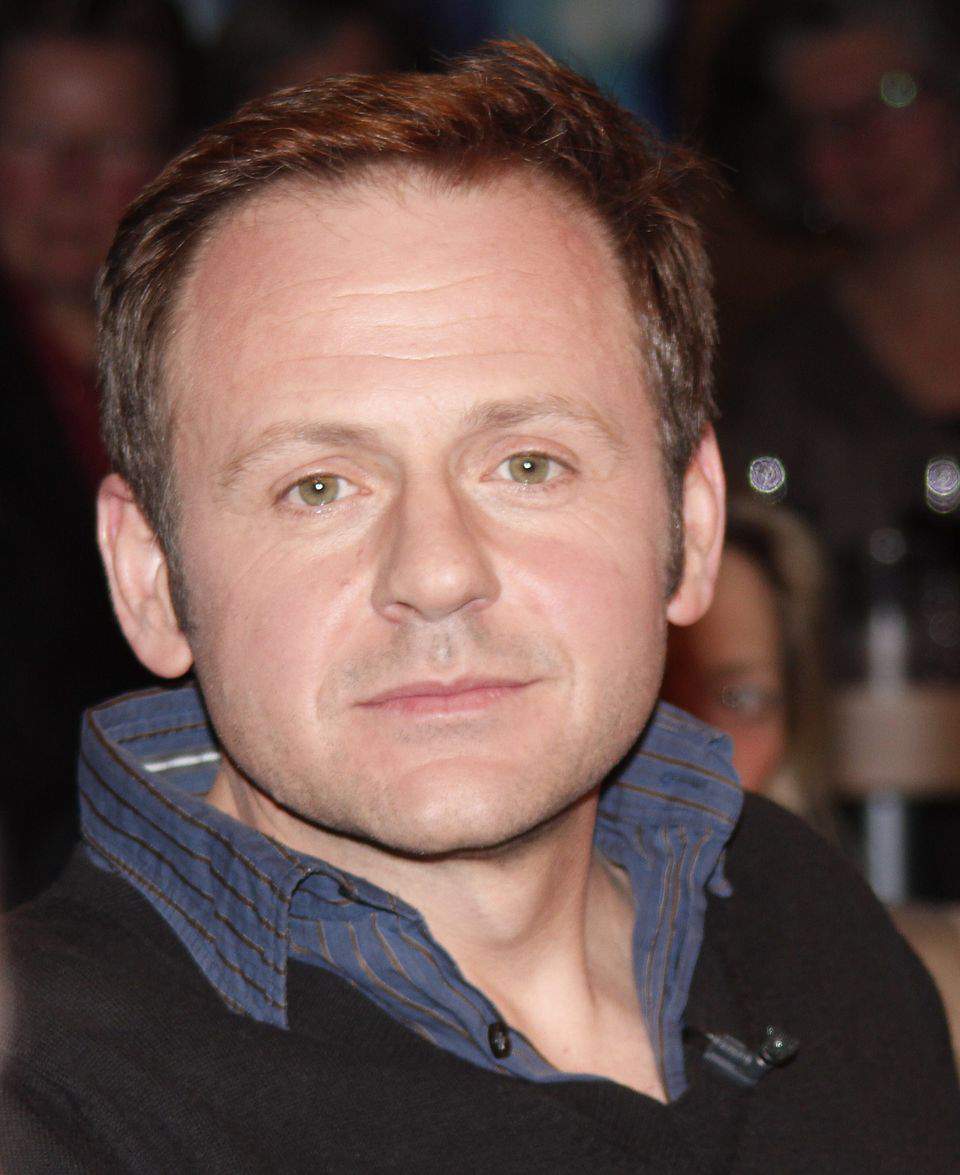
Samuel Finzi
Rabbi Hertz

Tim Steed
Bernard

Matilda Thorpe
Nina

Daniel Brown
Frank

Jirí Simek
Rudi

Barbora Váchová
Monika Holub

Juliana Moska
Hana Hejdukova

Jolana Jirotková
Gap-Toothed Girl

Michal Skach
Jan Slonek

Samuel Himal
Karel Slonek

Matej Karas
Petr Slonek

Ella Novakova
Lenka

Martin Bednár
Vaclav Slonek

Petr Jenista
Communist BCRC Volunteer
External Links and Streaming Options
Discover where to watch One Life online, including streaming platforms, rental options, and official sources. Compare reviews, ratings, and in-depth movie information across sites like IMDb, TMDb, Wikipedia or Rotten Tomatoes.
Ratings and Reviews for One Life
See how One Life is rated across major platforms like IMDb, Metacritic, and TMDb. Compare audience scores and critic reviews to understand where One Life stands among top-rated movies in its genre.

The Movie Echo Score
One Life delivers a restrained biographical drama that honors Nicholas Winton’s humanitarian efforts but struggles with uneven momentum. The film unfolds methodically, emphasizing daily routines and reflective flashbacks that sometimes feel protracted. Anthony Hopkins’ composed portrayal injects emotional gravity, yet supporting characters remain underdeveloped and dramatic tension is sporadic. While the concluding sequences provide moving resolution, the overall presentation remains subdued, resulting in a respectful yet occasionally distant viewing experience.
The Movie Echo Score Breakdown for One Life

Art & Craft
Understated art direction provides a measured period atmosphere but shows uneven visual engagement. The production design is meticulous in recreating 1930s settings, while editing choices and pacing yield occasional listless stretches. In terms of cinematography, a muted color palette reflects the film’s reserved tone yet can appear flat in extended sequences. Overall, the craft is reliable but lacks moments of visual inventiveness.

Character & Emotion
Anthony Hopkins anchors the cast with a nuanced, empathetic portrayal, but character depth beyond the lead remains inconsistent. When it comes to acting quality, Hopkins’ performance conveys quiet resolve, though supporting roles and the younger Winton lack sufficient development. Emotional resonance emerges most strongly in the final scenes, compensating for earlier tonal restraint. In sum, the lead performance impresses, even as secondary character exploration feels limited.

Story & Flow
The narrative delivers a straightforward account of the Kindertransport rescue yet experiences fluctuating momentum. In terms of plot coherence, the chronological structure is clear but suffers from didactic exposition and slow-building flashbacks. Pacing varies from deliberate and reflective to inert, and the storyline offers modest originality within the biopic genre. Engagement peaks during the final act’s emotional payoff. Overall, the story is informative but uneven in sustaining dramatic intensity.

Sensory Experience
The sensory elements craft a respectful but understated period ambiance. In terms of score and soundtrack, Hauschka’s music swells appropriately in key moments, while sound design supports authenticity. Visual style employs a muted palette and simple framing that underscore thematic restraint, yet lacks dynamic flair. The overall cohesion between audio and imagery is consistent, though it seldom surprises. In net effect, the technical execution is competent but quietly restrained.

Rewatch Factor
The film offers a conscientious tribute yet limited incentives for repeated viewings. In terms of replay value, Anthony Hopkins’ central performance retains interest, but the methodical pacing and predictable narrative arcs reduce lasting appeal. Occasional emotional highlights in the concluding act resonate, though they arrive too late to sustain further engagement. Overall, the modest emotional impact and conventional structure constrain the film’s incentive for multiple viewings.

69
Metascore
7.1
User Score


91%
TOMATOMETER

98%
User Score

/10
IMDb Rating

78
%
User Score

3.7
From 262 fan ratings

5.00/5
From 13 fan ratings
Take the Ultimate One Life Movie Quiz
Challenge your knowledge of One Life with this fun and interactive movie quiz. Test yourself on key plot points, iconic characters, hidden details, and memorable moments to see how well you really know the film.
One Life Quiz: Test your knowledge on the historical drama 'One Life' and its portrayal of Nicholas Winton's efforts to rescue children during World War II.
In what year does the story of 'One Life' primarily take place?
1930
1938
1945
1940
Show hint
Full Plot Summary and Ending Explained for One Life
Read the complete plot summary of One Life, including all major events, twists, and the full ending explained in detail. Explore key characters, themes, hidden meanings, and everything you need to understand the story from beginning to end.
As the tumultuous year of 1938 unfolded, the ominous shadow of Adolf Hitler loomed over Europe, casting fear and uncertainty among its inhabitants. In September, he executed the annexation of Austria, sending shockwaves throughout the global community. The leaders of Britain, France, and Italy, in a desperate attempt to avert a larger conflict, yielded to his demands, ceding control of the Sudetenland region in Czechoslovakia. Just a day after, Hitler’s forces stormed into Czechoslovakia, sparking a mass exodus of terrified refugees fleeing to the capital, Prague. Among these frightened families were countless children, all seeking safety and solace from the encroaching threat.
Far removed from this chaos, in the quiet English suburbs, Nicholas Winton (Anthony Hopkins) lived a comparatively peaceful life with his wife, Grete (Lena Olin). But beneath the surface of their tranquil existence, tensions brewed. Grete’s mounting frustration with the clutter resulting from Nicholas’ humanitarian work had reached a tipping point. As she prepared for an upcoming trip, she insisted he find a home for an old briefcase that had long been neglected in his office. Alone with the memories of his past, Nicholas was about to embark on a journey that would change countless lives.
Transporting us back to 1938, we meet a younger Nicholas, affectionately known as Nicky (Johnny Flynn), living in London with his mother, Babi (Helena Bonham Carter). A stockbroker by profession, Nicky found himself increasingly pulled into the humanitarian crisis unfolding in Prague. His friend, Martin (Ziggy Heath), already active in aiding the flood of refugees, implored him to join the cause, despite the evident dangers.
Upon his arrival in Prague, Nicky connected with Trevor Chadwick (Alex Sharp) and Doreen Warriner (Romola Garai), both members of the British Committee for Refugees. They provided Nicky a grim view of the dire conditions that refugees faced. One maid, Hana Hejdukova (Juliana Moska), graciously guided Nicky through the overcrowded camps, where he was profoundly struck by the sight of ill-equipped children bracing for the harsh winter ahead.
As Nicky investigated further, he stumbled upon a disheartening truth: the British Kindertransport program, which successfully evacuated children from Germany and Austria, had no plans to extend its efforts to Czechoslovakia. This realization only intensified his determination to help. He met with a Rabbi who voiced concerns over Nicky’s intentions, fearing they could inadvertently aid Hitler’s extermination plan. Undeterred, Nicky reminded the Rabbi that his Jewish heritage, though significant, had been overshadowed by his upbringing as a Christian. Gradually, the Rabbi came to understand Nicky’s intentions, and they began devising a plan to save the children.
When Nicky’s cause reached Babi, she sprang into action, gathering vital information from the British Immigration office. She encountered Mr. Leadbetter (Michael Gould), the head of the office, whose dismissiveness did little to deter her resolve. Meanwhile, Nicky paused his plans to join forces with Hana, thoroughly gathering data on the children in desperate need of help. He was especially focused on locating a young girl and her infant sibling that he had encountered during his initial visit.
Years later, a distressing call from his daughter prompted Nicholas to sift through stored memories, leaving behind remnants of his past. Nicky and Trevor worked relentlessly gathering testimonials from Jewish families, while Babi educated them on the arduous process of securing asylum—complete with application submissions, sponsorship, financial backing, medical certifications, and the commitment of foster families.
Not one to back down from a challenge, Nicky proposed using the press to rally public support, and Trevor presented him with a briefcase brimming with essential documents. Babi helped them draft an urgent letter outlining the dire conditions in Prague and their desperation for assistance.
As time’s sands slipped through the hourglass, Nicky and Babi paid another visit to Mr. Leadbetter, pleading with him to expedite the necessary processes to facilitate the escape of their first twenty children to Liverpool within a daunting two-week timeframe, especially given the threat of impending invasion. Babi’s heartfelt entreaty resonated with Leadbetter, who agreed to assist provided all paperwork was properly submitted.
In a race against time, Nicky and his team persistently worked alongside Martin to secure the vital documents for the first group. Trevor’s news of escalating turmoil in Prague served as a stark reminder of the escalating crisis, yet the first twenty children made their escape to England, and were subsequently assigned to their new foster families.
As Nicholas rifled through the memories of his past, he was determined to reveal and share the noble efforts of their mission. Despite encountering hurdles along the way, his commitment led him to meet Elisabeth “Betty” Maxwell (Marthe Keller), a historian interested in documenting his endeavors during the war. Together, they pored over the pages of a weathered scrapbook, each tale a testament to the countless lives he had affected. By the end, Nicholas proudly shared that he had facilitated the safe passage of 669 children, evoking admiration and heartbreak at the thought of those left behind.
With Christmas nearing, Nicholas and Grete welcomed their daughter, engulfed in holiday joy. However, amidst the celebration, a message from the Sunday Mirror emerged, offering Nicholas a chance to recount his harrowing yet uplifting story on BBC’s “That’s Life!” As he sat and awaited his moment on screen, the host, Esther Rantzen (Samantha Spiro), artfully conveyed Nicholas’ narrative, leading to an unexpected emotional reunion with Vera, one of the rescued children.
In the time that followed, Grete had once more received a call, revealing that two more individuals—whose lives had been forever changed due to Nicholas’ deeds—longed to meet him. This lead to another reunion on the show, where Esther revealed that the audience consisted entirely of the now-adult children that Nicholas had saved during the war.
Surrounded by tears of joy and warm cheers, Nicholas stood in awe of the lives he had touched, his heart swelling with fulfillment. In subsequent years, he and Grete continued to nurture relationships with Vera and her family, solidifying bonds of love forged through shared experiences.
In the remarkable epilogue of this journey, Nicholas maintained close ties with those he had rescued until his passing at the incredible age of 106. His legacy endured through the scrapbook, gifted to the Holocaust Museum in Israel as a tribute to his unwavering humanity and selflessness. In recognition of these noble contributions, Queen Elizabeth II honored Nicholas with the title of knighthood, a fitting tribute to a life devoted to uplifting others in their darkest hours.
Uncover the Details: Timeline, Characters, Themes, and Beyond!

Coming soon on iOS and Android
The Plot Explained Mobile App
From blockbusters to hidden gems — dive into movie stories anytime, anywhere. Save your favorites, discover plots faster, and never miss a twist again.
Sign up to be the first to know when we launch. Your email stays private — always.
Watch Trailers, Clips & Behind-the-Scenes for One Life
Watch official trailers, exclusive clips, cast interviews, and behind-the-scenes footage from One Life. Dive deeper into the making of the film, its standout moments, and key production insights.
One Life Themes and Keywords
Discover the central themes, ideas, and keywords that define the movie’s story, tone, and message. Analyze the film’s deeper meanings, genre influences, and recurring concepts.
One Life Other Names and Titles
Explore the various alternative titles, translations, and other names used for One Life across different regions and languages. Understand how the film is marketed and recognized worldwide.
Similar Movies To One Life You Should Know About
Browse a curated list of movies similar in genre, tone, characters, or story structure. Discover new titles like the one you're watching, perfect for fans of related plots, vibes, or cinematic styles.
Quick Links: Summary, Cast, Ratings, More

What's After the Movie?
Not sure whether to stay after the credits? Find out!
Explore Our Movie Platform
New Movie Releases (2025)
Famous Movie Actors
Top Film Production Studios
Movie Plot Summaries & Endings
Major Movie Awards & Winners
Best Concert Films & Music Documentaries
Movie Collections and Curated Lists
© 2025 What's After the Movie. All rights reserved.














